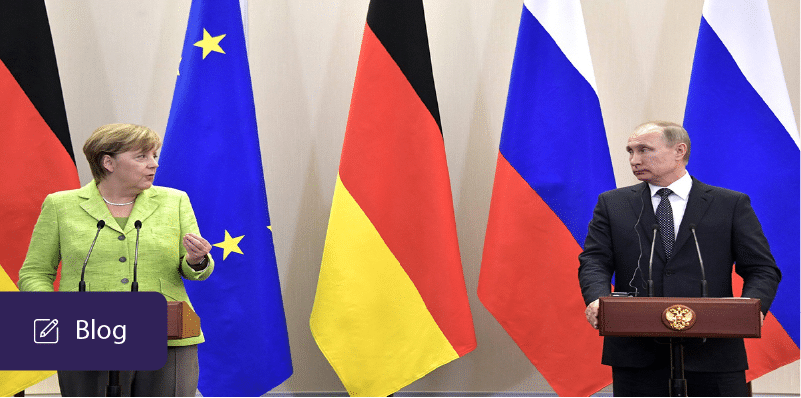The Fifth Money Laundering Directive (5AMLD) came into force on January 10, 2020.
Politically Exposed Persons (PEPs) and Sanctions verification and monitoring on individuals and entities cause the biggest confusion for many firms meeting both 4th and 5th Money laundering compliance requirements.
The following represent some of the main misconceptions relating to PEPS and Sanctions Compliance.
1) No Need to Monitor Existing Clients for PEPs
Existing clients can become PEPs after the initial due diligence has been performed. For example, a client of an investment firm could potentially be involved in a political career at a later date by running for a local election or becoming a member of parliament. This is only relevant for those running for senior political positions.
As any client from any regulated industry has the potential of becoming a PEP in the future, there is a legal obligation by a company to perform on-going PEPs monitoring to flag any status changes relating to a client.
Re-checking of past client checks to ensure compliance with AML regulation can be a laborious task if done manually. However, the easiest and most precise way to ensure no-one falls through the cracks is to use a software provider that can automate the ongoing monitoring process, automatically alerting you of any changes in a clients PEPs status, and helping to ensure you remain compliant.
2) Monitoring of Family / Close Associates of PEPs is Time-Bound
Any close associate or family member of a PEP should be checked and monitored immediately. It is important to do so as they are at a higher risk for potential bribery and corruption due to their close relationship with a PEP. Many family or associates may have joint beneficial ownership of a legal entity or a business relationship or maybe an individual who has sole beneficial ownership of a legal entity that was established for the benefit of the PEP.
To truly unravel a prominent official’s network, businesses need to rely on an AML platform that can automate a PEPs and Sanctions check, but also incorporate enhanced due diligence features that can flag anything suspicious.
NorthRow recommends that clients should monitor all their customers for the duration of their business relationship, including those associates and family members.
3) PEPs and Sanctions Only Apply to Foreign PEPs
The 2017 regulations have extended the definition of what is considered a PEP. Before the legislation change, only foreign PEPs were treated as a potential risk and were subject to enhanced due diligence. Now domestic (UK) PEPs are required to be scrutinised to the same degree as Foreign PEPs, including their immediate family and close associates.
4) PEP Status is Time Bound
International rulings have commonly adopted “once a PEP, always a PEP” approach. However, the level of seniority and prominent position of the PEP should be taken into consideration when determining the time-limit of their status. A town’s local MPs PEP status, for instance, would be hugely different than that of a Prime Minister.
This is why a ‘risk-based approach’ needs to be implemented when monitoring a PEP. Otherwise, a single risk threshold approach for all clients will lead to an increased number of checks, inefficiencies and increased compliance spend.
5) Face-to-Face Meetings Means No Further Due Diligence Is Required
Since the 4MLD, many firms make the assumption that, while they accept that they need to perform enhanced due diligence into domestic PEPs clients, they still are under the impression that if they have met the client in person, they no longer need to do a PEPs and Sanctions check online. Unfortunately, this is not the case and the same due diligence applies to all clients, not just those that have not been met in person.
6) Legal Entities Are Not PEPs
Legal Entities can also be PEPs if they are government owned, or if the senior people controlling the business are themselves PEPs. Those who control a companies finances could use it as a front for money laundering or terrorist financing. That is why you must perform comprehensive Anti-Money Laundering (AML) checks on beneficial owners, ultimate beneficial owners (those with above 35% share) and company directors.
7) False Positives Means Lack of Accuracy of Data
False positives are one of the challenges of PEPs & Sanctions checks. Accurately matching individuals against a global population of over 7 billion people with limited & incomplete data is a complex task.
This is why PEP screening should be part of a more comprehensive AML check which would need to check additional criteria such as addresses, dates of birth, gender, nationality and identity documents to better validate the exact person. It is also good practice to check this data across additional secondary sources to cross-reference match results.
Conclusion
Increased regulation and ongoing monitoring of your clients has the potential to slow down your businesses processes, frustrating your clients and increasing compliance costs.
NorthRow can automate e your Politically Exposed Persons (PEPs) and Sanctions checks and monitoring as part of NorthRow’s AML compliance solution. We can check individuals and entities against a multitude of quality global and domestic databases in one go.
Once a client is onboarded, individuals can be automatically added to our monitoring software, which will alert you when there is any change in status, to give you peace of mind that you continue to remain compliant.








